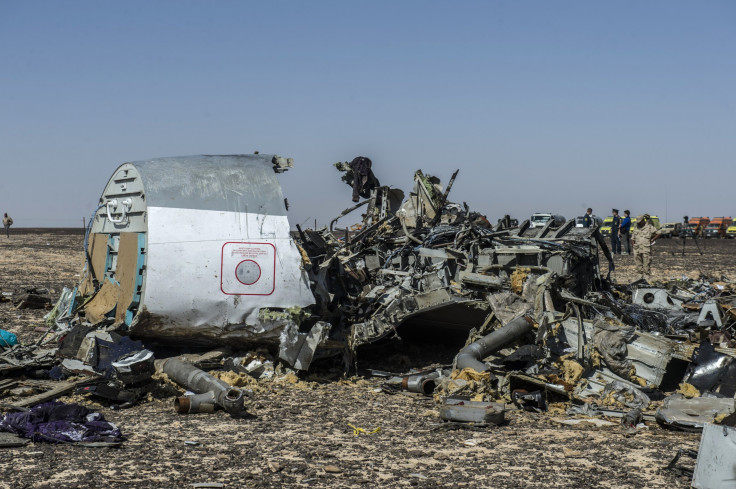Russian Sinai Plane Crash: Egypt Approves Controversial Anti-Terrorism Law After ISIS Claims Responsibility

Egypt imposed a new anti-terrorism law Wednesday, just days after alleged members of the Islamic State militant group claimed responsibility for downing a Russian plane in the Sinai Peninsula. Egyptian President Abdel Fattah el-Sisi swiftly approved the controversial legislation, which allows for fast-tracking court proceedings in terrorism cases, according to teleSUR, which cited state media reports.
A Russian passenger jet heading from the Egyptian resort of Sharm el-Sheikh to St. Petersburg crashed in Egypt’s Sinai Peninsula Saturday, killing all 224 people on board. The sparsely populated desert region, which lies between the Red Sea and the Mediterranean Sea, has become a battlefield between Egyptian security forces and militants affiliated with the Islamic State, also known as ISIS.
ISIS appeared to take responsibility for bringing down the plane in a statement posted online Saturday, but Egyptian and Russian officials have disputed the claim, according to CNN. An audio message posted on social media Wednesday, believed to be from Wilayat Sinai, an ISIS affiliate, confirmed the claim of responsibility made Saturday, according to the Independent.
#IS in #Sinai announces a new audio message on the #Russia|n plane crash: "We downed it, so die in your rage" pic.twitter.com/tKV1Yx2Z3h
— Pieter Nanninga (@pieternanninga) November 4, 2015The audio message was released as Sisi introduced the new counterterrorism law. Critics have long accused Sisi’s regime of using terrorism charges to jail political opponents. Human rights groups have said the anti-terrorism legislation Sisi enacted in August further erodes basic rights and enshrines a permanent state of emergency. Sisi, however, has defended the sweeping security laws and said he is taking Egypt on a path to democracy.
"We want to carry out the will of the Egyptian people," he told BBC News Wednesday. "They have been calling for change for four years. We want to honor their choice and will do our best to achieve a better democratic future for them."
Sisi, a retired field marshal, led the Egyptian army’s overthrow of President Mohammed Morsi in 2013 following mass protests. More than 1,000 people have been killed since then, and another 40,000 are believed to have been imprisoned in a crackdown on dissent.
"What has been achieved in our experience may not be the best, but we are going ahead with it, and we will make further progress," Sisi told BBC News Wednesday.
© Copyright IBTimes 2024. All rights reserved.





















